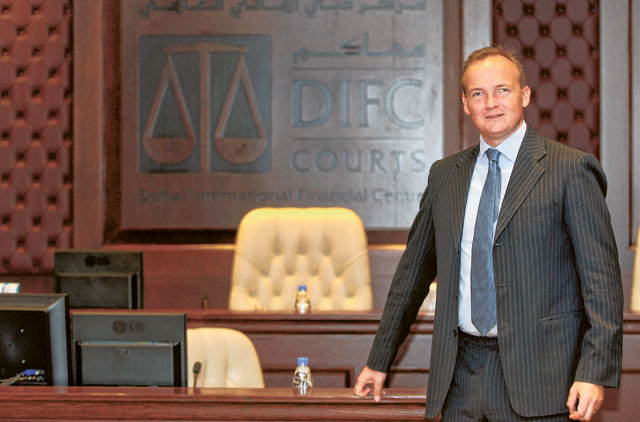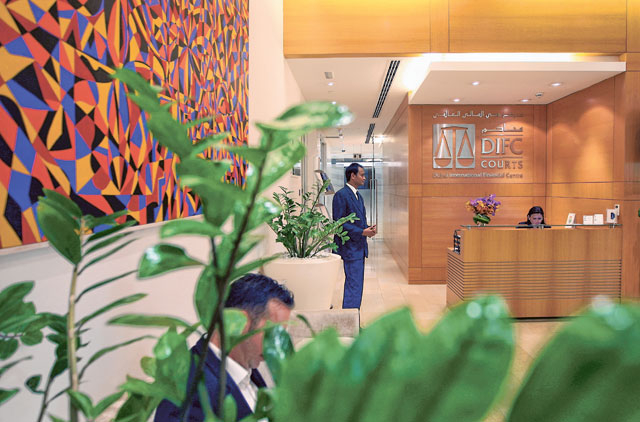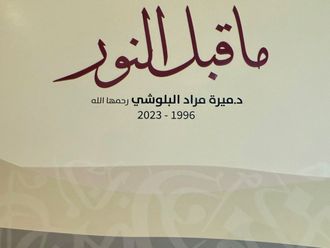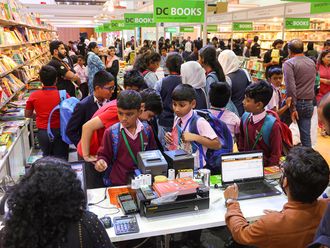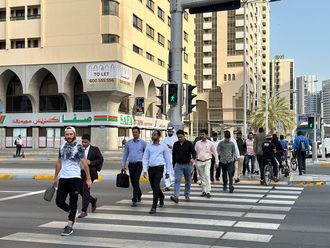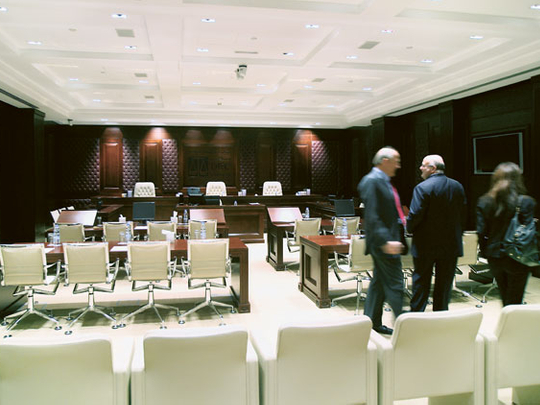
Dubai: Last November, a 34-year old Lebanese national registered a claim in the Dubai International Financial Centre Courts (DIFC Courts), seeking a Dh100,000 compensation for job termination without notice.
The presiding judge settled the case within 10 days and ordered the defendant to pay the claimant a sum of Dh38,840 immediately.
In another case, a 62-year-old CEO, a European, registered a claim last April against his company, seeking his notice period salary of around $16,666 (Dh61,164). Within four weeks, the presiding judge ordered the defendant to pay the claimant the full amount on or before June 2011.
Both the claimants have received their money.
These are but two instances of the hundreds of cases settled by DIFC Courts since it became fully operational in 2008. The court was established in 2004.
"Civil and commercial disputes in Dubai are being resolved within four weeks or less at the DIFC Courts," Mark Beer, Registrar, DIFC Courts, told XPRESS.
Only civil and commercial cases — such as contract disputes, employment and insolvency issues — are resolved at the DIFC Courts, provided both parties give their consent to be heard. The court does not hear any criminal or family related cases as they fall under the jurisdiction of the Dubai Courts.
In its early years, the DIFC Courts heard only those cases that involved DIFC-registered free zone companies. But in November 2011, the Dubai government widened the courts' jurisdiction to hear cases outside DIFC's purview.
Following that move, Beer said there has been an increasing number of disputes coming from small and medium enterprises (SMEs).
"The phone hasn't stopped ringing ever since. Every call is responded to within one working day and every e-mail within two," said Beer, adding, "SMEs particularly are leaning towards the DIFC Courts for speedy resolutions and because all hearings are in English."
The key components that make up the DIFC Courts are the Small Claims Tribunal, a Court of First Instance, and a Court of Appeal.
While claims bigger than Dh30 million are heard by the Court of First Instance, civil and commercial disputes with smaller claim amounts are settled by the Small Claims Tribunal (SCT), which acts more like a mediation centre. DIFC Courts have so far settled disputes worth over Dh3 billion in claim value through the Court of First Instance alone and over 400 cases through the tribunal.
"Almost 70 per cent of the disputes heard in the SCT are employment related," said Beer.
THE TRIBUNAL
Shedding light on why disputing parties prefer the DIFC Courts to other local courts, Ghada Qaisi Audi, Head of Disputes Resolution, Fichte & Co Legal Consultancy and former DIFC Courts Acting Deputy Registrar, said: "The procedures are quite simple, the language of the court is English and all aspects of the proceedings are confidential.
"The fact that over 90 per cent of the disputes get resolved in under four weeks is a remarkable advantage to SME's, especially in a debt recovery case. Also, costs are lower since no lawyers are required to represent at the tribunal."
There's another reason why costs are lower at DIFC Courts. "The DIFC Courts is more economical than other local courts as a party can file one claim on multiple contracts against a company or individual. Even if an investor has a dispute on different projects of a real estate developer, they can combine all these contracts into one claim," said Ludmila Yamalova, Managing Partner of law firm HPL Yamalova & Plewka JLT.
She added: "In local courts, an investor is required to bring separate cases for each one of the contract."
And as for all orders issued by the DIFC Courts, they are made under the name of His Highness Shaikh Mohammad Bin Rashid Al Maktoum, Vice-President and Prime Minister of UAE and Ruler of Dubai, and so they are like any other Dubai court order, enforced accordingly and according to DIFC Courts' enforcement procedures.
- 70 per cent of disputes at Small Claims Tribunal are employment related


